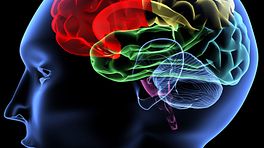Alcohol has been widely used to ease pain over the centuries, and the practice hasn’t completely gone away.
See Medications for Back Pain and Neck Pain
Despite the range of safer pain relief options, one study found that about a quarter of the more than 3,000 participants used alcohol to self-medicate for various kinds of pain.
Alcohol’s muscle relaxant effect may make pain less noticeable for a short time, but it typically causes far more problems than it solves and should not be used to treat low back pain.1
See Side Effects and Risks of Muscle Relaxers
Interactions with Medication
Serious problems can develop from drinking alcohol while using other medications. These are some of the more common risks:
- Drinking can lead to a potentially fatal overdose while using narcotic pain medication.
- Liver failure can result from combining alcohol and acetaminophen (often better known by the brand name Tylenol).
- Interactions with certain antidepressants can be fatal. In other cases, antidepressants’ effectiveness may be hampered by alcohol use. Side effects, such as drowsiness, may become more pronounced.
- Stomach bleeding is more likely when alcohol and aspirin are used at the same time, or when alcohol and a non-steroidal anti-inflammatory medication (NSAID) is used.
Individuals should carefully check the labels of all prescription and non-prescription medications they take to see whether alcohol should be avoided.
Risk of Alcoholism
Because the body develops a tolerance to alcohol’s effects, over time it is necessary to intake more alcohol to get the same feeling and/or to attempt to self-manage pain. Since alcohol is habit-forming, this could lead to alcoholism.
When a person who has been drinking heavily stops drinking, the individual may have an enhanced sensitivity to pain, which is especially difficult for patients with severe back pain.
See When Back Pain May Be a Medical Emergency
Contributing to Depression
Alcohol may seem at first to boost the mood, but using alcohol excessively can make depression more likely. As a major depressant, alcohol will also exacerbate any preexisting depression.
One of the ways alcohol can worsen depression is by disrupting the kind of deep sleep that is crucial to good health. People using alcohol may fall asleep quickly, but are likely to wake up during the night. Lack of sleep can worsen depression.
Excessive drinking also raises the risk of suicide.
See Diagnosis of Depression and Chronic Back Pain: Depression Questionnaire
Role in Weight Gain
Alcohol in excess is fattening, and may take the place of more nutritious foods and drinks. Also, when people are drinking, they may be less careful about how much and what they are eating.
See Weight Loss for Back Pain Relief
Any added weight puts extra pressure on the spine, and may make it more difficult to exercise, both of which can worsen back pain.
In summary, anyone with back pain should avoid alcohol entirely, or drink judiciously and take care to never combine alcohol with medication.
References
- 1.Riley JL III, King C. Self-report of alcohol use for pain in a multiethnic community sample. J Pain. 2009 Sep;10(9):94452. doi: 10.1016/j.jpain.2009.03.005.






